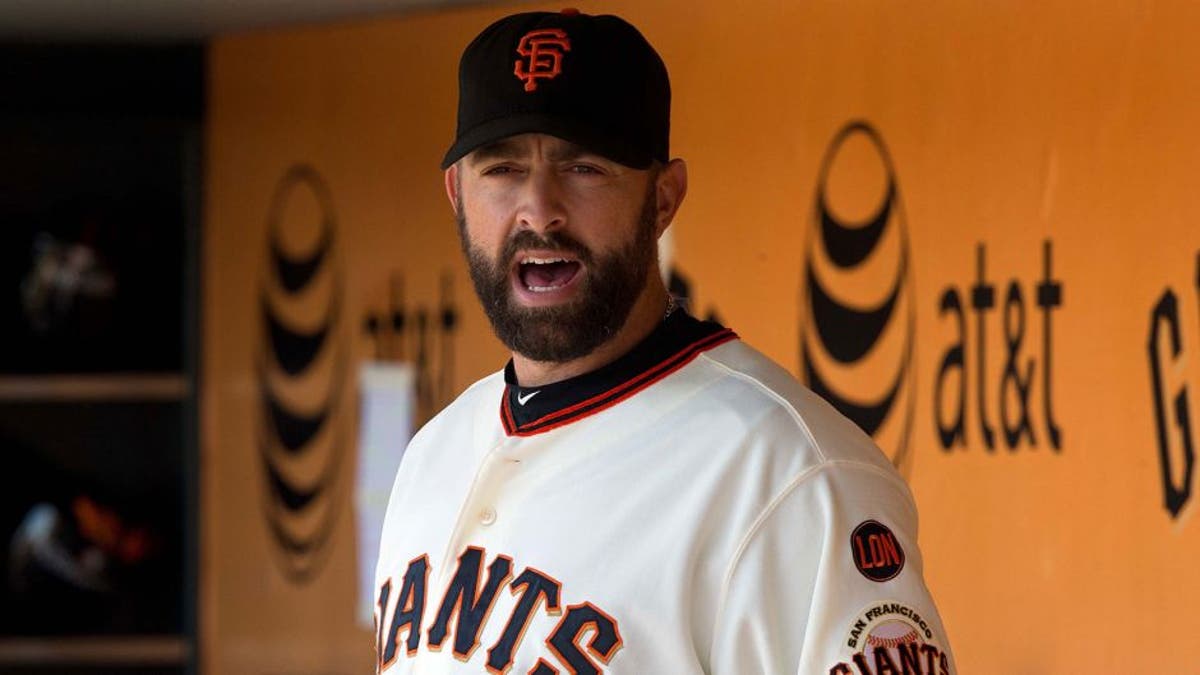
SAN FRANCISCO, CA - SEPTEMBER 20: Jeremy Affeldt #41 of the San Francisco Giants stands in the dugout before the game against the Arizona Diamondbacks at AT&T Park on September 20, 2015 in San Francisco, California. The San Francisco Giants defeated the Arizona Diamondbacks 5-1. (Photo by Jason O. Watson/Getty Images)
As he announced his retirement from baseball after 14 seasons on Thursday, San Francisco Giants reliever Jeremy Affeldt delivered a candid take on the aspects of baseball he won't miss after he's done playing.
Among the things Affeldt will be happy to no longer have to deal with are Phillies fans, poor facilities at Wrigley Field, constant travel, the recent influx of incessant showboating, and drug testing.
As the 36-year-old left-hander discusses the latter topic, he delves into his opinions on PED use in baseball, having made his major-league debut at the height of the steroid era in 2002.
"While I can't say for sure how guys are still on something today, I do know that it's a lot less than the roughly 40 percent of players I believe were cheating 15 years ago," he writes in an essay for Sports Illustrated.
Affeldt states that he never took PEDs during his career and assures that MLB is "100 times cleaner now" than it was when he entered the league as a 23-year-old spot starter in the early 2000s.
While he contends the game is substantially cleaner now, he believes that players still use PEDs as they continue to discover new ways to avoid detection in testing despite harsher penalties for being caught with a banned substance.
Although he didn't personally take PEDs, Affeldt describes the major impact their rampant use had on his career.
"It was selfish of them, though, and unfair to those of us who weren't doing it," he writes. "By inflating (or, in the pitchers' cases, deflating) their numbers, PED abusers were taking food off my table, rendering my accomplishments and statistical achievements less meaningful -- and certainly less useful when negotiating my contracts."
Among his career accomplishments, Affeldt won three World Series titles with the Giants, to which he made a major contribution with his shutdown relief in key situations.
He held a 0.86 postseason ERA in his career, and didn't allow a run in 22 innings in the Giants' last two World Series campaigns in 2012 and 2014.
"Most people don't believe me, but I really didn't do anything different on the mound in the postseason than I did during the regular season," Affeldt explains. "My success in the most critical of situations was just as easily attributable to my managers putting me in good positions to succeed and my defense making plays behind me as it was because of anything I did out there."
Despite his negative musings on the game, Affeldt concludes his essay on a positive note about the sport that granted him the opportunity to do what he loved while simultaneously making millions of dollars.
